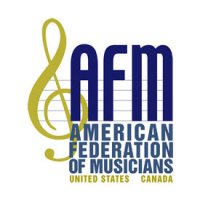An Interview with Elaine Douvas, Principal Oboist with the Metropolitan Opera Orchestra
Last May, as the Metropolitan Opera Orchestra musicians were facing a difficult negotiation, Local 802 published a lovely and insightful interview with Elaine Douvas in Allegro, their monthly newspaper. Bob Pawlo, Local 802 recording rep, asked her many questions that delved into the complex life of a principal player in perhaps the world’s most demanding orchestra.
Ms. Douvas speaks at length about her mentors at the Cleveland Institute: John Mack and James Levine. “Both of them taught respect for the composer’s intentions.” She won the principal job in Atlanta while still a college student, and describes what it was like working with legendary Robert Shaw (stressful!).
In 1977 she won her position at the Metropolitan Opera, and she describes the process Maestro Levine used to bring the orchestra to its current level of excellence. “I think one of his most laudable accomplishments is that he transformed the orchestra without firing people. I think for a conductor to come in and fire people is a second-rate way of improving an orchestra.”
She talks about the influence on the orchestra of working with the world’s best singers, and of course with her own journey of becoming skilled at reed making.
Perhaps the most fascinating part of this interview is the glimpse we get into her life as a Metropolitan Opera musician. “I leave home about 8:45 a.m. for a 10:30 rehearsal, get out around 2 p.m., and then teach for about four hours. The evening performance begins at 7:30 p.m., and I head home about 11 p.m., arriving around midnight. I play three or four performances a week at the Met. Rehearsals in the daytime take about 10 hours over three days, and I put in about 10 to 16 hours a week teaching.“
She discusses her love of figure skating! “As in music, you balance detail and discipline with abandon, and all sorts of analogies carry over. If you’re tracing a figure eight, it’s just like playing a long tone; you need a perfect attack, push-off and total symmetry. It is a balancing act; you use opposition of different body parts, the same as support on the oboe.”
Finally, she talks about the legacy of John Mack back to Marcel Tabuteau back to George Gillet, who believed in teaching from etude books rather than audition excerpts. She describes her own philosophy as a teacher: “I wish I didn’t have to prepare them for auditions from the day they arrive,“ and the importance of teaching students the history of the union, so that they understand what life was like in major orchestras a few decades ago.
You can read the entire interview on Local 802’s website by clicking here.


No comments yet.
Add your comment